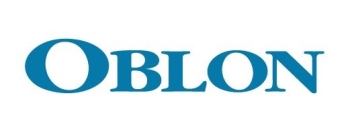On June 15, 2016, Lehigh Valley Technologies, Inc. of Allentown, Pennsylvania (“Lehigh”), Endo Global Ventures of Bermuda, Endo Ventures Ltd. of Ireland, and Generics Bidco I, LLC d/b/a Qualitest Pharmaceuticals and Par Pharmaceutical of Huntsville, Alabama (collectively, “Complainants”) filed a complaint requesting that the ITC commence an investigation pursuant to Section 337.
The complaint alleges that Viva Pharmaceutical Inc. of Canada, Virtus Pharmaceuticals, LLC of Tampa, Florida, and Virtus Pharmaceuticals OPCO II, LLC of Nashville, Tennessee (collectively, the “Proposed Respondents”) unlawfully import into the U.S., sell for importation, and/or sell within the U.S. after importation certain potassium chloride powder products. In particular, the complaint states that the Proposed Respondents import and sell a “Potassium Chloride for Oral Solution, USP, 20 mEq” product, and that such product is not approved by the U.S. Food and Drug Administration (“FDA”). According to the complaint, the Proposed Respondents unfairly compete with Complainants through the false and misleading packaging, marketing, promotion, distribution, and sale of the Proposed Respondents’ unapproved potassium chloride powder products.
The complaint states that Complainants market and sell the only FDA-approved potassium chloride powder products in the U.S. market. According to the complaint, such products are used for the treatment and prophylaxis of hypokalemia with or without metabolic alkalosis, in patients for whom dietary management with potassium-rich foods and/or diuretic dose reductions are insufficient. Hypokalemia is a deficiency of potassium in the blood stream, and it is potentially life-threatening when not treated.
In the complaint, Complainants state that the Proposed Respondents import and sell products in ways that unfairly compete with Complainants’ products. In particular, the complaint alleges that the Proposed Respondents falsely advertise and promote their unapproved potassium chloride powder products as FDA-approved products, thereby causing confusion among customers, distributors, and others. The complaint further alleges that the Proposed Respondents mislead consumers by passing off their potassium chloride powder products as prescription drugs as opposed to dietary supplements.
Regarding domestic industry, Complainants state that they have invested significant money developing, obtaining approval for, and purchasing and maintaining equipment and facilities used to manufacture their potassium chloride powder products. The complaint specifically refers to a Lehigh facility in Allentown, Pennsylvania. Further, Complainants state that the Proposed Respondents’ alleged false and misleading advertising and unlawful importation and sale of potassium chloride products have caused, and threaten to cause, substantial injury to Complainants’ domestic industry.
As to related litigation, Complainants state that on June 13, 2016, they filed a parallel complaint in the U.S. District Court for the District of Delaware.
With respect to potential remedy, Complainants request that the Commission issue a permanent limited exclusion order and a permanent cease and desist order directed at the Proposed Respondents and related entities.




